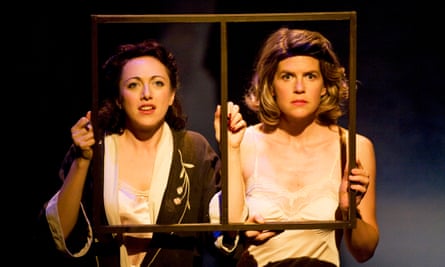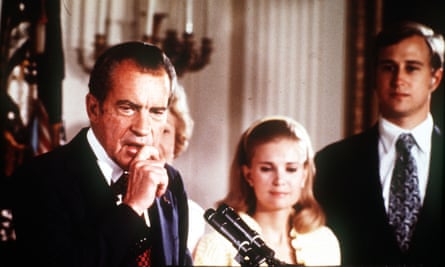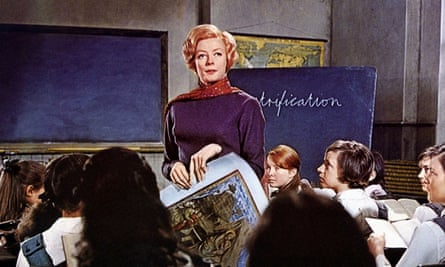 |
| Muriel Spark |
‘Vital, witty, formidably blithe’: Ali Smith on Muriel Spark at 100
Spark shone a light on her times, and ours. In the week of her centenary, her fellow Scottish novelist celebrates a writer who gave us the gift of the future
Recently I found myself rereading Muriel Spark’s novel The Mandelbaum Gate for the first time in 30 years. I’ve been rereading a lot of Spark over this last year and a half, because the times we’re in right now, and the way the information speedfests are forming our everyday history and asking such challenging questions about truth and lies and fiction, mean that I’ve found I’ve had the need of Spark like never before – her intelligence, her longsightedness, her wit, her liberating merriment, her formidable blitheness.
Can blitheness be formidable? I think Spark’s is. She’s this formidable, she’s this generous, I thought, holding The Mandelbaum Gate open in my hands on a train early last November – rereading it at a time when, on the fronts of all the free Evening Standards round me up and down the train, our then British international development secretary happened to have been off having one-sided “secret” talks with the Israeli government. The moral complications of the contemporary were pretty fresh, to my mind anyway, on pages 28 and 29 of The Mandelbaum Gate, set in 1961 in the Jerusalem of the Adolf Eichmann trial.
In the novel, which was her eighth, and was first published in 1965, a guide is driving Barbara, one of the main characters, around in Judea and Galilee. Barbara is a half-Jewish convert to Roman Catholicism, like Spark herself was. Barbara also happens to be very passionately in love with someone who’s on the other side of a border she’s going to have trouble crossing because of her ethnicity. She is finding herself adrift in the various Jerusalems and questioning her identity. She and her driver swap family stories. She tells him that her father “broke his neck while fox-hunting. The horse threw him. He landed in a ditch and died instantly.” The guide, “a large blond Pole”, replies: “My father also died in a ditch. Shot by the SS. Why have you made yourself a Catholic to deny your Jewish blood?”
It’s a book about divided states and one that goes out of its way, up against the worst historical odds, to honour the uniting, in each individual soul, of paradoxical impossible divisions. Up and down the train I was travelling on, through a UK more divided than at any other time in my life so far, the front pages were also featuring a US president’s “achievements” a year after his election, and whether or not he’d pull off, in the land of the free, his plan to ban, by categories of faith and ethnicity, a large swath of human beings from entering the US, a plan he first mooted earlier in 2017 on Holocaust Memorial Day – and one for which he’d get the legal go-ahead just a few weeks after I was on that train, around the same time as he’d be adding to Jerusalem’s own troubled split status by declaring it the Israeli capital.

I was marvelling at several things about the book in my hands, one of them being its contemporary relevance, and another that this novel arose from that visit to the Eichmann trial that Spark made for a few days in 1961; she’d gone there as a journalist, to report for the Observer. But although she heavily annotated the transcripts of what she heard while there, she doesn’t seem to have submitted any reports to the paper – instead, we have this never not relevant novel.
I’d also been reading a brilliant book of essays by Professor Lyndsey Stonebridge called The Judicial Imagination: Writing After Nuremberg, in which there’s a chapter about this novel. In it, Stonebridge points out “the atrocities Spark heard about in the courtroom between 26 and 28 June were mainly committed against children”. She notes that Spark was there when Eichmann’s defence lawyer was working especially hard to produce some “imaginary tenderness on Eichmann’s part”, and, she says, Spark’s decision to analyse the “repetition of the circumlocutory obscenity of Eichmann’s speech” when it comes to addressing these atrocities in her novel “carries their living massacre like an invisible scar”. But those children, the ones who never got to be more than children because of Eichmann, “remain outside of Spark’s narrative”.
Still, here’s what I was noticing for only the first time though I was rereading it probably for the third or fourth: as this book begins, set in and about its own time, less than 20 years after the end of the war, there are so many children in it, children all over the place, children everywhere, just passing through the narrative; its beginnings are full of them, the city casually full of them. Regardless of Eichmann.

One more time, Spark had just passed on to me an unexpected gift: the gift of the future. I’m beginning to think her books are themselves a kind of fruitfulness. I was recently reading her 1963 novel The Girls of Slender Means, which I’d also reread very recently, only about a year ago, and thinking as I did, but did I read another, different, edition of this, this time last year? Was this page, was this thread of thought, in this book the last time I read it? So much so that I’m beginning to think that Spark, in a 2003 poem she wrote called “Authors’ Ghosts”, was pre-envisioning this unexpected gift to her readers in her own books when she says:
I think that authors’ ghosts creep back
Nightly to haunt the sleeping shelves
And find the books they wrote.
Those authors put final, semi-final touches,
Sometimes whole paragraphs.
Whole pages are added, re-written, revised,
So deeply by night those authors employ
Themselves with those old books of theirs.
How otherwise
Explain the fact that maybe after years
Have passed, the reader
Picks up the book – But was it like that?
I don’t remember this … Where
Did this ending come from?
I recall quite another.
Oh yes, it has been tampered with
No doubt about it –
The author’s very touch is here, there and there,
Where it wasn’t before, and
What’s more, something’s missing –
I could have sworn ...
Books make futures – even their own futures – negotiable. Long-ago-finished books are themselves still strangely open, changeable, adaptable, as she suggests in this funny poem about how we relate to art as time passes and how it relates to us.
Spark was always a poet, she said, in her “outlook on life and her perception of events”. Her understanding of time, for instance, has little to do with chronology. Long ago in 1951. Long ago in 1945. One day in the middle of the 20th century. Spark lovers will be familiar with this kind of construction in her work, this ability she has of revealing a century as, you know, just another century among lots of centuries, or our own times as the stuff of ancient legend.
She is a writer who knows the discipline and the weighty thought it takes, to be able to tread that lightly, to be that airy – airy is a word this most serious of writers dares to use quite often. “You mustn’t think that because I take my gifts seriously, I take them solemnly. It is all an airy dream of mine, unsinkable because it is light,” the narrator says in a short story called “The Fortune Teller”, because it’s not just the pasts and the presents Spark is concerned about the life of or the death of, it’s the futures too.
But this formidable blitheness? How is blitheness possible at all, in the face, say, of facts such as Eichmann?
Above all: “It is my first aim always to give pleasure.” This is how she described her raison d’etre as a writer, and to me she is one of the 20th-century writers most vitally, joyfully, seriously philosophically, aesthetically and politically engaged with the living materials of history, and with her own time, in a way that gives back to our time, and that will always give to readers no matter what time they’re embroiled in, whenever they read her.
She was born in “sober Edinburgh”, and though this most international of Scottish authors lived in Rhodesia then London then New York before she finally settled in Italy, Edinburgh was the place, as she says in her essay, “What Images Return”:
where I could not hope to be understood ... nevertheless, it was the place where I was first understood ... my whole education, in and out of school, seemed even then to pivot around this word. My teachers used it a great deal. All grades of society constructed sentences bridged by “nevertheless” ... I find that much of my literary composition is based on the nevertheless idea. I act upon it. It was on the nevertheless principle that I turned Catholic.
Nevertheless. It’s a word that declares never, then follows never with something more, more in the guise of less, a word like a rope bridge across an uncrossable ravine. Is it important that this most European and international of writers was, as she put it, “certainly a writer of Scottish formation” brought up in the Calvinist capital, where, as she said, she “imbibed, through no particular mentor, but just by breathing the informed air of the place, its haughty and remote anarchism”? Here’s the importance. This, she says, meant that she was free of false hopes. “I can never now suffer from a shattered faith in politics and politicians, because I never had any.”

What a gift. No false hope. You might call it the gift of true hope. In fact, it is the lying of politicians that makes the unsmiling war-baby narrator of the short story “The First Year of my Life”, born like Spark herself was, “on the first day of the second month of the last year of the First World War”, finally break, a whole year after her birth, into her first long overdue “decided smile” – on hearing Asquith hold forth on the radio. “He said that the war has cleansed and purged the world, by God! I recall his actual words: ‘All things have become new. In this great cleansing and purging it has been the privilege of our country to play her part ...’ // That did it.”
I long for Spark right now, the knowing Spark smile in the era of Trump. What we can do, though, is reread her 1974 novel The Abbess of Crewe, a satire on the Watergate scandal of the 1970s, written, published and in the shops while Watergate was still on the front pages. That’s how timely Spark was, and is. In the book a power struggle breaks out at a convent of holier than thou powermongers, in a building that’s heavily bugged, where everybody is surveilling everybody else, and whose biblical homilies, read out over lunch and dinner to the congregated nuns, run as follows:
not to gratify the desires of the flesh. To hate our own will and to obey the commands of the Abbess in everything, ... remembering the Lord’s command … systems of recording sound come in the form of variations of magnetisation along a continuous tape of, or coated with or impregnated with, ferro-magnetic material. In recording, the tape is drawn at constant speed through the airgap of an electromagnet energised by the audio-frequency current derived from a microphone. Here endeth the reading.
With her wildly comic fiction Spark alerts us to the workings of surveillance, the workings of politically expedient narrative structures, and the powerplay in the seductions of fiction. In all this, she hands us the key to the demystification the age needs in, say, an age of Trump, an age in which living means having powerful fictions nationally, internationally and politically foisted on us. Her fiction lets us understand the workings of such fictions.

People don’t tend to think of Spark as particularly politically engaged as a writer. It’s rather like people thinking Jane Austen wasn’t politically engaged, when every single person who read Persuasion at the time of its publication will have known, as they came to the end of the book, that the finally well matched pair of lovers settling down together as if for ever and for a better future, Anne as the wife of her Navy man, are actually within touching distance of what’s about to happen next just past the closed back cover of the book – the battle of Waterloo and all its losses. Which is a bit like setting a novel whose final happinesses are all settling into place on a lovely summer evening in an Edward Thomas landscape in the idyllic long light days of the months of June, July, the year 1914.
And at the end of that particular catastrophic first world war? Right now we’re celebrating the birth, in 1918, of a novelist who would see the coming century for us with real vision, and not just for us but for the centuries after us too.
I think of myself reading The Prime of Miss Jean Brodie for the first time in 1979, in Inverness, when I was a 17-year-old schoolgirl myself, a book about education and schoolgirls and, yes, the powers of persuasive fictions, and fascisms, and knowing then, after reading it, that a novel could be a new kind of poetry. That fiction had given me a way to understand, with a lucidity that felt local and personal, the hugeness of the histories, bullying, exclusion, powermongering, fictionalising and longsighted understanding, which had made the world I was alive in right then, and had formed my parents’ world, the world of the past when they were young in a war they never spoke about; and that every exchange was pertinent, that words matter, that what we make up has consequences, that the long view and romanticism have their own warring history. This funny, lithe masterpiece of a novel let me understand and question my own very human repulsions and attractions, to understand too that I didn’t have to follow role though role was very seductive, and finally that there was such a thing as a read so bloody good, in all the meanings of good, that fictions? They really matter.
Muriel Spark is always, in pretty much everything she wrote, meditating on the relationships between art, power, and the goods and bads and uses of both. I can’t think of another novelist who unites the heart, the soul and the intellect with quite such interrogatory merriment, or who’s seen so clearly the 20th century for the industrial spinner of fictions it became, then seen our lives across and after that century with such fused lyricism, liberation, merciless understanding and forbearance.
As she herself put it: “Art is an act of daring.”
Formidable blitheness
An extended version of this essay will be broadcast on Radio 3 on 5 February as part of The Essay: All Miss Brodie’s Girls celebrating Muriel Spark.
THE GUARDIAN

No comments:
Post a Comment